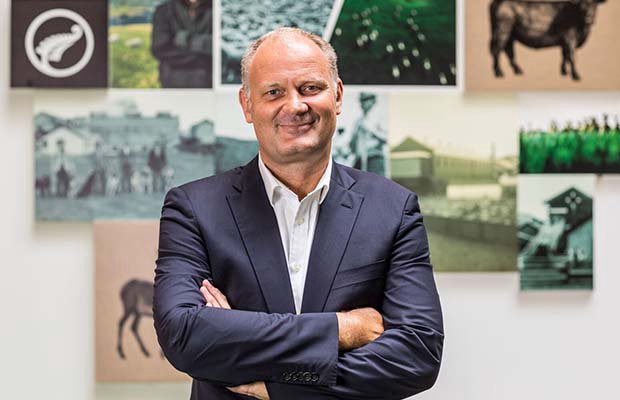A record financial result last year is enabling Silver Fern Farms to make the largest capital investment in its 75-year history.
Every element of its business will receive attention in the coming few years, from technology and capital at its 14 sites through to information and data collection systems and in-market investment.
Chief executive Simon Limmer said the $189.3 million after-tax profit for the year to December 31 2022, up form $103.8m a year earlier, is an endorsement of its plate-to-pasture strategy.
SFF has now had several consecutive years of financial stability despite multiple challenges, and Limmer credits its strategy, the support of farmers and staff, and business agility to find solutions to a variety of challenges.
“Ultimately what we are producing is resonating with consumers,” Limmer said.
“By telling our story well and connecting with consumers, we will continue to extract more value.”
Investment would be made into plants, given that several are over 100 years old; information systems to integrate the supply chain and accelerate its strategy; and in further understanding markets and consumers by gathering data and analysis.
Limmer said much of the technology will have to be developed to suit the business as it is not available off the shelf, such as extending the traceability of meat back to farms.
In the year under review, SFF had a $500m increase in revenue to $3.273bn for the year ($2.749bn).
Earnings before interest, tax, depreciation and amortisation (Ebitda), including a share of associate earnings, were $301.3m ($179.7m).
It will pay a fully imputed dividend for the year of $76.9m ($46.7m), which includes an interim dividend already paid of $31.9m.
Shareholders in SFF Ltd, the operating arm of the business, are SFF Co-operative and China-based Shanghai Maling.
Total livestock premiums paid for the year were $10.3m, up from $6.9m.
SFF Co-operative reported a net profit of $94.1m ($51.5m).
It will receive a dividend of $38.45m ($23.4m) of which it will pay shareholders $33.5m ($18.4m).
This will be distributed through a fully imputed dividend of 23.2c/share payable to all ordinary and rebate shareholders. It includes a 10.1c/share interim dividend which has already been paid.
It will also pay a fully imputed patronage reward of 21.6c/share payable on qualifying shares to supplying shareholders based on supply during 2022.
The co-op will retain $5m in reserve.
Limmer said in an interview that New Zealand food production systems meet consumer demands but need to continuously evolve.
“Markets are demanding that and we have to maintain our social licence to operate in NZ. Our response to climate change will move us in that direction.”
Farmer suppliers will be rewarded for meeting these standards through programmes such as zero carbon beef, which is being expanded.
SFF is continuing to reduce its carbon emissions and is also part of a joint venture with the government to increase research, on a dollar-for-dollar bases, to reduce greenhouse gases from livestock.
SFF has invest $4m in the project, which will boost work underway at the Pastoral Greenhouse Gas Research Consortium.
Looking ahead, Limmer said after some upheaval in the last quarter of last year when prices fell sharply, there are signs markets are recovering and he is optimistic it will not be short lived.
“The underlying demand is strong and leads me to be optimistic for the medium term.”










